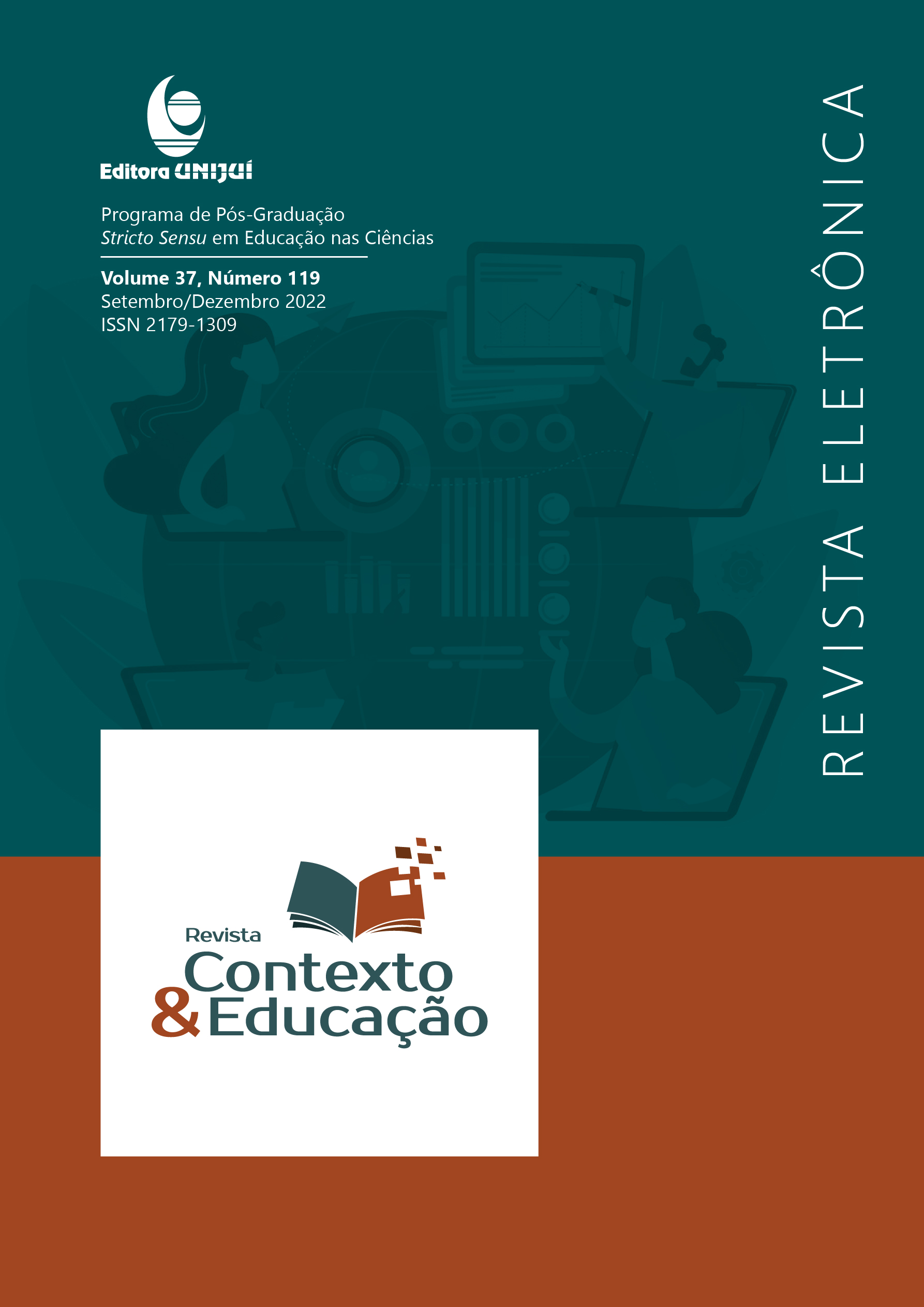Reflections on the construction of interdisciplinary knowledge in a technical course in food
DOI:
https://doi.org/10.21527/2179-1309.2022.119.13185Abstract
The work presents results of the reconstruction of a training action planned as a way of contextualizing disciplinary knowledge of physics in the context of an Integrated Food Technician Course, which initially sought to evaluate the potential of integrating disciplinary knowledge through practical application. of an artisanal dryer. The interaction between teachers from different curricular units, one from the common core and the other from the professional, resulted in the negotiation for an integrative training action, which would be materialized in the form of a course conclusion work, exploring a proposal for the practical application of physical concepts in methods artisanal food drying. In the third semester of the course, the students began a process of knowledge interaction and in the sixth semester, they sought to integrate them in the execution of a practice using the artisanal food dryer. The results obtained indicate that the activities based on the use of the artisanal fruit dryer have the potential to promote an interdisciplinary construction of knowledge as recommended by the proposal of professional technical education, but it needs a planning of how to provoke an effective integration of previous knowledge about study. heat in food drying.
Downloads
Published
How to Cite
Issue
Section
License
Copyright (c) 2022 Revista Contexto & Educação

This work is licensed under a Creative Commons Attribution 4.0 International License.
By publishing in Revista Contexto & Educação, authors agree to the following terms:
All works are published under the Creative Commons Attribution 4.0 International License (CC BY 4.0), which allows:
Sharing — to copy and redistribute the material in any medium or format;
Adaptation — to remix, transform, and build upon the material for any purpose, even commercially.
These permissions are irrevocable, provided that the following terms are respected:
Attribution — authors must be properly credited, a link to the license must be provided, and any changes made must be indicated.
No additional restrictions — no legal or technological measures may be applied that legally restrict others from doing anything the license permits.
Notices:
The license does not apply to elements that are in the public domain or covered by legal exceptions.
The license does not grant all necessary rights for specific uses (e.g., image rights, privacy, or moral rights).
The journal is not responsible for the opinions expressed in the articles, which are the sole responsibility of the authors. The Editor, with the support of the Editorial Board, reserves the right to suggest or request modifications when necessary.
Only original scientific articles presenting research results of interest that have not been previously published or simultaneously submitted to another journal with the same purpose will be accepted.
Mentions of trademarks or specific products are intended solely for identification purposes and do not imply any promotional relationship by the authors or the journal.
License Agreement (for articles published from October 2025): Authors retain the copyright to their article and grant Revista Contexto & Educação the right of first publication.


